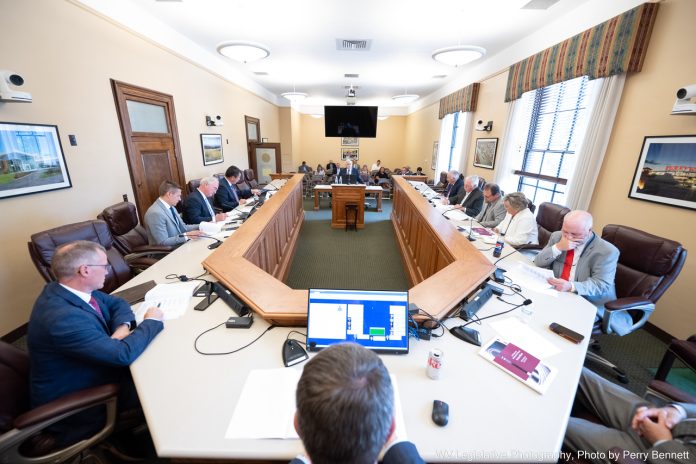Members of the Joint Standing Committee on Finance heard from Division of Human Services Cabinet Secretary Cynthia Persily on Monday morning, the second day of August interim meetings.
During April interim meetings the DoHS told lawmakers the department would need $2.3 million per month, or about $23 million, to fund the Child Care Assistance program at the current rate beginning in September for the remaining 10 months of the current fiscal year. The additional funds were needed to abide by new federal rules that take effect in September requiring states to fund child care providers based on enrollment at individual facilities instead of attendance.
Persily informed lawmakers that funding for the program was coming from surplus dollars in the Temporary Assistance for Needy Families (TANF) program. While the program is currently projected to have adequate funding through the end of the year, Persily said it is hard to predict when that funding will run out.
Lawmakers questioned Persily as to why DoHS is not using funds set aside for the department in the May special session. The Legislature passed a bill in May restoring more than $5 million to the Department of Health and more than $183 million to DoHS. The bill allows the secretaries of the departments to transfer money out of these new reserve funds to provide money for other line items. Persily said they had no plans to touch that funding until the fourth quarter – April, May, and June – of the current fiscal year.
In other news in the meeting, with Republican lawmakers consistently expressing support for phasing out the personal income tax over time, Senate Finance Committee Chairman Eric Tarr, (R-Putnam), asked Department of Revenue Deputy Secretary Mark Muchow about the state’s six-year revenue and expenditure forecast and whether revenue officials were factoring in future costs that could affect tax revenues in out-years.
Muchow said that the recent trend in record-breaking end of year tax revenue surpluses are likely coming to an end for the time being.
“It’s unusual to have huge revenue surpluses like we’ve had here in recent years,” Muchow said. “There’s a lot of factors that generated those huge revenue surpluses, including trying to keep the budget pretty flat. Over the long run, our revenues are going to be more in line with spending, and you’re not going to see every year a $400 million or $500 million surplus.”
Tarr and other lawmakers have been frustrated about being blindsided by the governor’s request for the additional 5 percent personal income tax cut, with legislative leaders not consulted.
“If there’s further discussion that’s had about accelerating a tax cut beyond the economic growth of the State of West Virginia with our projected expenses in mind, could you bring that explanation or have somebody from the Governor’s Office bring that explanation to this committee at some time before session,” Tarr asked.

